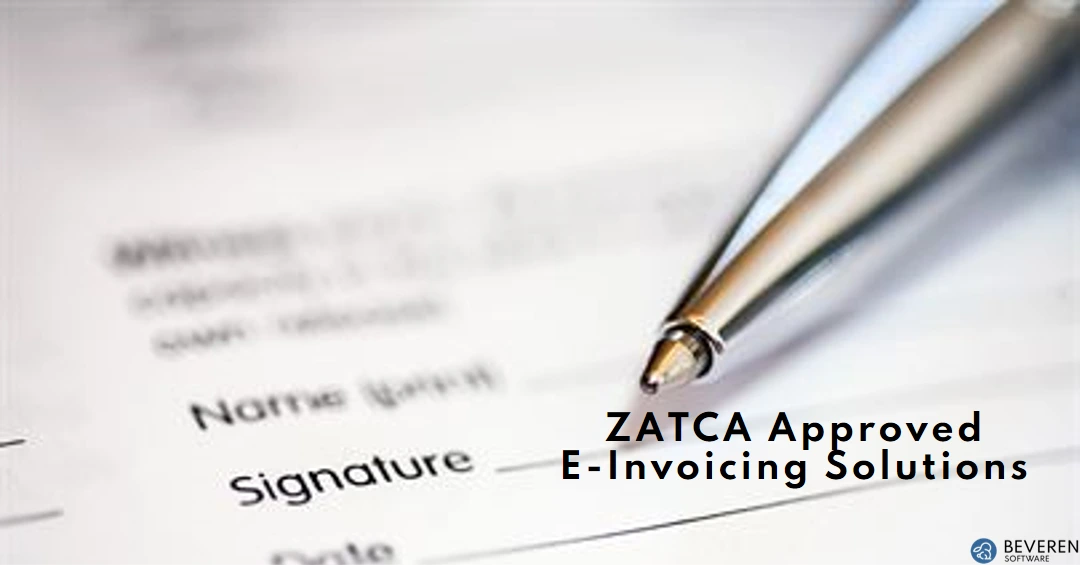In the ever-evolving landscape of digital transformation, the Kingdom of Saudi Arabia (KSA) has taken significant strides towards modernizing its invoicing systems through the Saudi Arabian Tax Authority (ZATCA). With the introduction of e-invoicing, businesses are faced with the challenge of Zatca phase 2 integration of multiple stores to comply with Phase 2 of the KSA e-Invoicing system. This article delves into the intricacies of this integration process, outlining steps, benefits, challenges, and best practices for seamless implementation. Introduction to ZATCA and KSA e-Invoicing ZATCA, the regulatory body overseeing taxation in Saudi Arabia, introduced the KSA e-Invoicing system to digitize and streamline invoicing processes. Phase 1 of the implementation mandated large businesses to adopt electronic invoicing. Phase 2 expands this requirement to include medium and small-sized enterprises (SMEs), necessitating the integration of multiple stores to facilitate compliance. Understanding ZATCA Phase 2 Integration Explanation of Phase 2 Phase 2 of KSA e-Invoicing extends the scope of electronic invoicing to encompass SMEs, marking a significant milestone in the country’s digital transformation journey. It aims to enhance transparency, reduce tax evasion, and improve overall efficiency in financial transactions. Importance of Integration for Multiple Stores For businesses operating multiple stores, integrating with ZATCA is paramount to ensure compliance with Phase 2 regulations. Failure to integrate can result in penalties, operational disruptions, and reputational damage. Integrating Multiple Stores with ZATCA for Phase 2 Implementation Requirements for Integration Before embarking on the integration process, businesses must ensure they meet the necessary requirements set forth by ZATCA. This includes having a valid Tax Identification Number (TIN) and adopting compatible invoicing software. Steps to Integrate with ZATCA Benefits of Integration Streamlined Invoicing Process Integration with ZATCA streamlines the invoicing process, reducing manual errors and expediting transactional workflows. Compliance with Regulations By integrating with ZATCA, businesses ensure compliance with Phase 2 regulations, mitigating the risk of non-compliance penalties. Enhanced Efficiency and Accuracy Automated invoicing processes enhance efficiency and accuracy, enabling businesses to focus on core operations rather than administrative tasks. Challenges and Solutions Common Challenges Faced Integration challenges may include data synchronization issues, software compatibility issues, and staff training requirements. Solutions to Overcome Integration Challenges Engaging with experienced software providers, conducting comprehensive training sessions, and implementing robust data management protocols can help overcome integration challenges. Best Practices for Seamless Integration Utilizing Reliable Software Solutions Investing in reliable software solutions with a proven track record of successful integration can streamline the implementation process. Training and Support for Staff Providing comprehensive training and ongoing support to staff members ensures smooth adoption and utilization of integrated systems. Future Outlook and Adaptation Anticipating future changes in regulatory requirements and continuously adapting integration processes is crucial for long-term compliance and efficiency. Conclusion Integration with ZATCA for Phase 2 implementation of KSA e-Invoicing is a critical step for businesses operating multiple stores in Saudi Arabia. By understanding the requirements, overcoming challenges, and adopting best practices, businesses can streamline their invoicing processes, ensure compliance, and position themselves for future success in the digital economy. FAQs Non-compliance may result in penalties, operational disruptions, and damage to the reputation of the business. Businesses should conduct a thorough assessment of their systems and engage with software providers offering solutions tailored to ZATCA’s specifications. Comprehensive staff training is essential to ensure smooth adoption and utilization of integrated systems, minimizing disruptions and maximizing efficiency. While possible, switching software providers post-integration may entail additional costs and complexities. It’s advisable to choose a reliable provider from the outset. Regularly monitoring updates from ZATCA and engaging with industry associations can help businesses stay informed about evolving regulations and adapt their processes accordingly.
Understanding ZATCA Approved E-Invoicing Solutions In the realm of tax regulations in Saudi Arabia, the advent of ZATCA e-invoicing solutions has heralded a significant transformation. ZATCA, or the Zakat, Tax, and Customs Authority, plays a pivotal role in regulating fiscal matters within the Kingdom. With the increasing digitization of various processes, including invoicing, ZATCA has introduced a framework for approved e-invoicing solutions, aiming to streamline tax compliance and enhance transparency. Advantages of ZATCA Approved E-Invoicing Solutions Enhanced Compliance and Accuracy ZATCA e-invoicing solutions offer businesses a robust platform to ensure compliance with tax regulations. By digitizing the invoicing process, companies can mitigate errors and discrepancies, thereby fostering greater accuracy in their financial transactions. This not only simplifies tax reporting but also reduces the risk of non-compliance penalties. Real-time Monitoring and Reporting One of the key benefits of ZATCA e-invoicing solutions is the ability to monitor transactions in real-time. By leveraging digital platforms, businesses can track invoicing activities seamlessly, enabling proactive identification of potential issues or irregularities. This real-time reporting mechanism empowers organizations to maintain transparency and uphold regulatory standards effectively. Cost Efficiency and Resource Optimization Traditional paper-based invoicing processes often entail significant costs associated with printing, mailing, and storage. In contrast, ZATCA e-invoicing solutions offer a cost-effective alternative by eliminating the need for paper documentation. Moreover, the automation capabilities inherent in digital invoicing systems enable resource optimization, freeing up personnel to focus on value-added tasks. Integration and Interoperability ZATCA approved e-invoicing solutions are designed to integrate seamlessly with existing accounting and enterprise resource planning (ERP) systems. This interoperability facilitates smooth data exchange between different platforms, thereby streamlining workflow processes. Additionally, integration with ZATCA’s regulatory framework ensures alignment with tax guidelines and reporting requirements. Implementation Considerations for Businesses Assessing Compatibility and Scalability Before adopting ZATCA e-invoicing solutions, businesses should conduct a thorough assessment of their existing infrastructure and operational needs. It is essential to ensure compatibility with existing systems and evaluate scalability to accommodate future growth requirements. This proactive approach helps organizations make informed decisions regarding technology investments and implementation strategies. Training and Change Management Successful implementation of ZATCA e-invoicing solutions necessitates adequate training and change management initiatives. Employees must be equipped with the necessary skills to navigate the new digital platforms effectively. Moreover, fostering a culture of innovation and adaptability within the organization can facilitate smooth transition and acceptance of technological changes. Compliance and Data Security Compliance with ZATCA regulations and adherence to data security standards are paramount considerations for businesses adopting e-invoicing solutions. Companies must prioritize data privacy and implement robust security measures to safeguard sensitive financial information. This entails encryption protocols, access controls, and regular audits to mitigate potential risks and ensure regulatory compliance. Leveraging Technological Innovations for Tax Compliance In the ever-evolving landscape of tax regulations, embracing technological innovations is paramount for businesses seeking to maintain compliance and operational efficiency. ZATCA approved e-invoicing solutions exemplify this trend, offering a dynamic platform that integrates seamlessly with modern accounting systems. By harnessing the power of digital invoicing, organizations can transcend traditional constraints and unlock new avenues for growth and regulatory adherence. Driving Business Agility and Competitiveness Beyond mere compliance, ZATCA approved e-invoicing solutions confer a strategic advantage to businesses by fostering agility and competitiveness. The ability to automate invoicing processes, reconcile transactions in real-time, and generate insightful analytics empowers decision-makers with actionable intelligence. This agility enables organizations to adapt swiftly to market dynamics, capitalize on emerging opportunities, and maintain a competitive edge in an ever-changing landscape. Navigating Complex Regulatory Frameworks Navigating the intricate web of tax regulations can be daunting for businesses, especially in regions with stringent compliance requirements such as Saudi Arabia. ZATCA approved e-invoicing solutions serve as a beacon of clarity amidst this complexity, providing a standardized framework for tax reporting and documentation. By aligning with ZATCA’s regulatory guidelines, businesses can navigate the intricacies of tax compliance with confidence and precision. Fostering Collaboration and Transparency Collaboration between businesses and regulatory authorities is essential for fostering transparency and mutual trust. ZATCA approved e-invoicing solutions facilitate seamless communication and data exchange between stakeholders, enhancing transparency and accountability in financial transactions. This collaborative ecosystem not only strengthens relationships between businesses and regulators but also instills confidence in investors and stakeholders. Embracing the Future of Fiscal Governance As the global economy continues to embrace digital transformation, the future of fiscal governance lies in embracing innovative solutions such as ZATCA approved e-invoicing. By leveraging advanced technologies such as blockchain and artificial intelligence, these solutions hold the promise of revolutionizing tax compliance and regulatory oversight. Through continued innovation and collaboration, businesses and regulatory bodies can pave the way for a more efficient, transparent, and resilient fiscal ecosystem. In conclusion, the role of ZATCA approved e-invoicing solutions in Saudi tax regulations cannot be overstated. From enhancing compliance and accuracy to driving business agility and competitiveness, these solutions offer a myriad of benefits to organizations operating within the Kingdom. By embracing technological innovations, businesses can navigate complex regulatory frameworks with ease, foster collaboration and transparency, and ultimately, shape the future of fiscal governance in Saudi Arabia and beyond.




